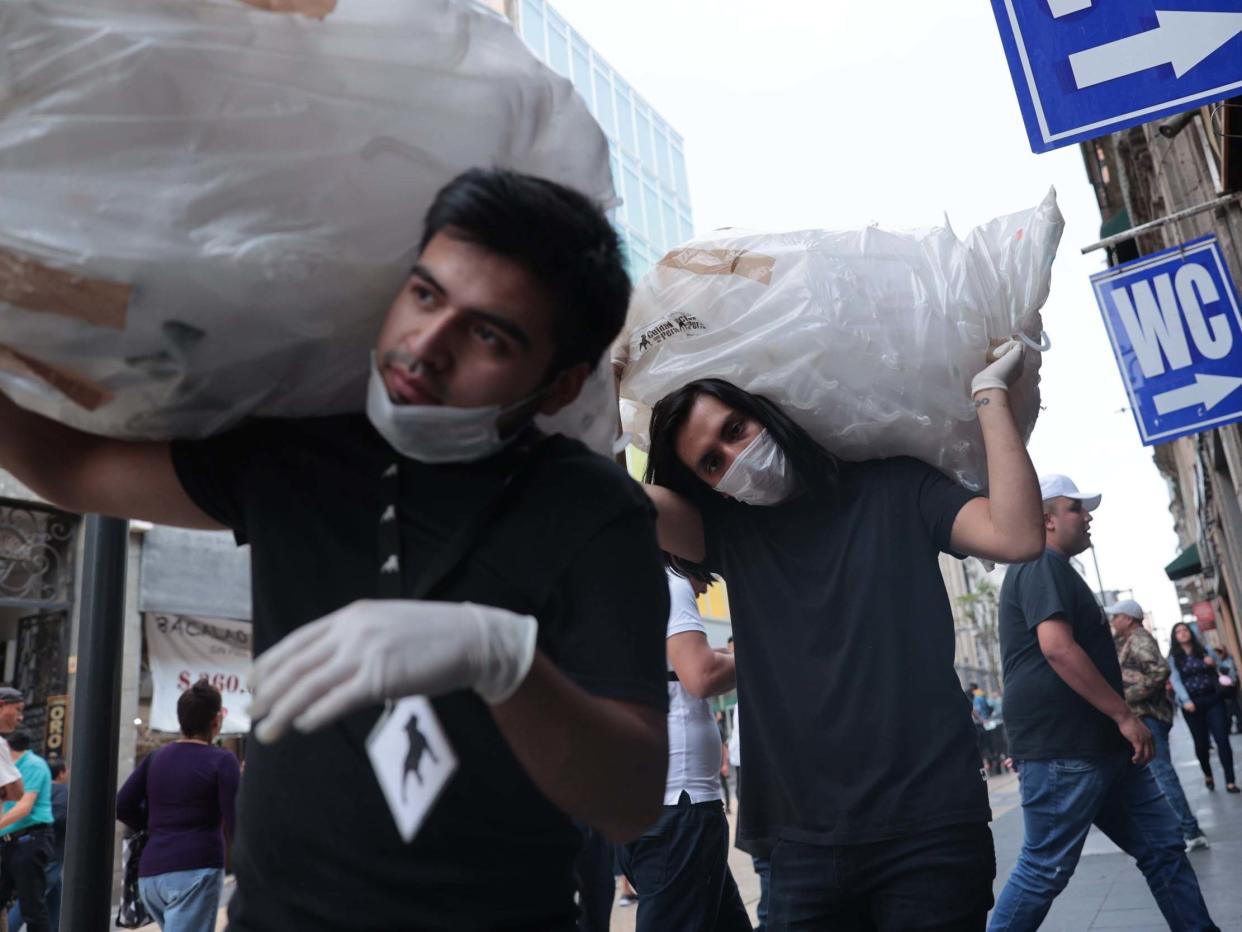Here in Mexico, coronavirus is the least of our problems

While the international media has focused most of its coverage of Covid-19 on the global north and China, in the global south we are also are dealing with the first cases of the virus. But it’s not the first time people here in Mexico have been exposed to potentially lethal imported illnesses. During the conquest of Mexico between 1519 and 1521, Spanish troops brought smallpox with them to the Americas, killing over two million indigenous people. In 1918, the Spanish flu killed between 300,000 and 500,000 people, here. More recently, between March and July 2009, there were over 12,000 reported cases of the A(H1N1) influenza virus in Mexico and 122 recorded deaths.
And while I want to underscore the need for government and society to take coronavirus seriously by, this new virus is one of many major public health challenges we in the global south are facing. For instance, since the 1970s, the mosquito-borne dengue fever has presented a considerable strain on the public health system – in 2018 alone, there were over 12,000 cases in Mexico. Then, there’s the second leading cause of death in Mexico after heart disease: diabetes. In 2017, over 106,000 people died from the condition and its complications. Meanwhile, between nine and 10 women are killed daily in Mexico as a result of gender-based violence. Mexico is, in other words, inundated with major public health challenges.
In the context of the current global pandemic, images from the global north and BRICS countries have dominated the news and social media coverage; people singing songs together from balconies while under quarantine, panic-buying in supermarkets, and despicable hate crimes committed against Chinese people being blamed for the public health crisis, just to name a few. But in many countries like Mexico where millions of people live in poverty – we can’t just meet the pandemic head-on even if we wanted to, because we have major socioeconomic issues that are inextricably linked to dealing with the virus. For instance, what will people who live below the poverty line do if forced into quarantine? There are tens of thousands of people in this country who live day-to-day with no social safety net. Fishermen, waiters, porters, parking attendants, street vendors, indigenous women selling their handicrafts on the street – how do we tell them that they should stay home? For many in Mexico, the financial risks of staying at home are greater than the health risks of going to work. Social distancing is simply not an option.
Of Mexico’s nearly 120 million culturally and geographically diverse citizens, more than 57 million are economically active. Of those, over 50 per cent are part of the informal economy. While federal and state governments have been taking critical measures to stem the spread of coronavirus – issuing radio and television announcements, closing schools for a month, cancelling large events – demanding that such a large informal economy halt or significantly limit its activities is an impossible task. These measures have a generally positive effect on the population, regardless of socioeconomic status.
So, just like in the global north, people in the global south must heed the recommendations of the World Health Organization as best we can. Yet at the same time, health officials must support those large segments of the population economically less able to minimise their exposure to the virus.
Read more
How to be productive if you have to work from home during coronavirus
Which countries around the world has coronavirus spread to?
The dirty truth about washing your hands
Should you be taking paracetamol or ibuprofen to treat coronavirus?
What are symptoms of coronavirus – and where has it spread?
Countries like Mexico are among the most vulnerable to Covid-19. Yet they are also the most used to managing health crises – and I am confident we will get through this one, also.
Dr Marcos Del Rosario-Santiago is a urologist in the Mexican Navy, and a writer. All views are his own and not those of the Mexican Navy.

 Yahoo News
Yahoo News 
